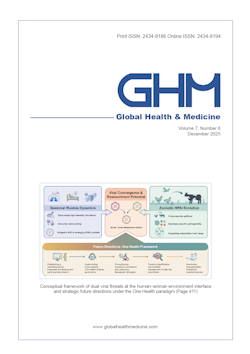Global Health & Medicine 2021;3(3):163-170.
Determining desire to live among patients with advanced hepatobiliary-pancreatic cancer for whom curative treatment is not indicated
Morishita J, Inoue T
This study aimed to evaluate the desire to live among patients with advanced hepatobiliary-pancreatic cancer who were excluded from radical treatment and to examine the ideal nursing support for them. We recruited 18 patients in a department specializing in the treatment of hepatobiliary-pancreatic cancer at a university hospital in the metropolitan area of Japan. We included those with advanced hepatobiliary-pancreatic cancer who received a treatment other than definitive treatment. We conducted semi-structured interviews, and the responses were analyzed qualitatively and descriptively. Events experienced by patients with advanced hepatobiliary-pancreatic cancer and out of indication for radical treatment were divided into five major phases, while desire to live was divided into 11 categories. Two of these categories were represented by the word "death". The desire to live was present in all phases, and the expressions of these desires were diverse. Patients suppressed expressing their desire to live because they understood that their situation was challenging. In addition, there was a tendency to avoid expressing their desire to live to medical staff and their families. We found that nurses need to establish a medical relationship in which patients can express their desire to live and become connected to nursing support.
DOI: 10.35772/ghm.2021.01017







